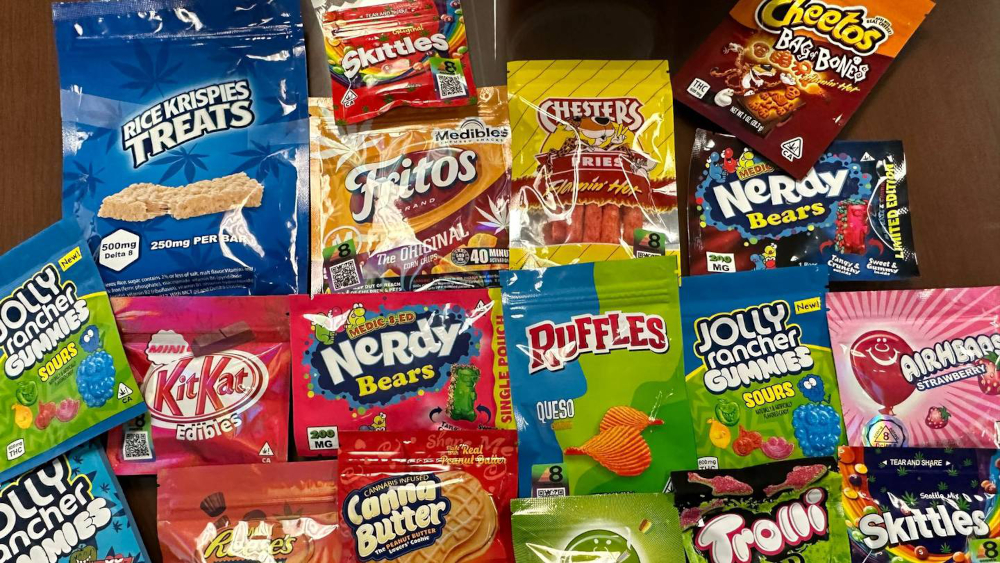While the legalization of industrial hemp five years ago heralded potentially vast new markets, the reality has brought chaos, exploitation and threats to public health, state attorneys general warn in a letter to the Committee on Agriculture in the U.S. House of Representatives.
Top law enforcement officials from 20 states signed on to the bi-partisan letter, dated, Wednesday, March 20, which urges Congress to use the upcoming Farm Bill to address the spread of intoxicating hemp products across the nation.
“The promise of the 2018 Farm Bill to create this agricultural commodity market . . . has failed,” according to the two-page letter. “Instead, hemp-derived intoxicants have proliferated across our states, posing a significant threat to public health and safety, and benefiting unregulated, untaxed, and unaccountable market actors,” the letter says.
Contributing factors
Congress legalized hemp under the 2018 Farm Bill, and the crop was touted for its potential across a number of sectors: seed for food; fiber for textiles, insulation and high-tech applications; hemp “hurd” for construction; and extracts, mainly CBD health supplements made from the plant’s flowers.
But the federal law created a loophole by not accounting for synthetically produced psychoactive products that can be manufactured from CBD base material.
After the market for over-the-counter CBD extract health aids boomed then busted beginning in 2019, companies left holding backlog CBD stocks started selling them to the producers of high-producing compounds such as delta-8 THC, often referred to as “diet weed” or “marijuana light.”
An entirely new sector made up of intoxicating hemp products rapidly developed among CBD producers, and distributors and sellers of products containing the synthetic compounds. The products, packaged to mimic popular brand-name snacks to make them attractive to youth, quickly spread, unregulated, through gas stations and convenience stores, bodegas, hemp and CBD shops and other retail outlets.
$28 billion gray market
“Because of the ambiguity created by the 2018 Farm Bill, a massive gray market worth an estimated $28 billion has exploded, forcing cannabis-equivalent products into our economies regardless of states’ intentions to legalize cannabis use, and dangerously undermining regulations and consumer protections in states where adult-use legal cannabis programs are already in place,” the letter observes.
CBD: The Continuing Crisis
- New York CBD market under serious threat as judge dismisses stakeholders’ lawsuit
- After delta-8 THC makes students sick, classmates spur ban on intoxicating hemp
- Delta-8 THC, other ‘diet weed’ products belong in pot dispensaries, says Arizona AG
- New York CBD market ‘halted,’ as crackdown brings ‘immediate and catastrophic effect,’ lawsuit says
- DeSantis’ signature on Florida bill could severely cripple nation’s 2nd biggest CBD market
- New Thai government likely to crack down on both marijuana and CBD
- South Dakota law aimed at hemp intoxicants is likely to wipe out CBD market
- South Carolina bans CBD and intoxicating hemp products as states continue crackdowns
- When it comes to ‘novel food’ and CBD in the UK, more questions than answers
- Connecticut AG cracks down on illegal sales of delta-8, delta-9 products
- Oklahoma hemp task force won’t deal with flowers, likely leaving CBD to marijuana regulators
- CBD down, fiber up, as early signs show U.S. hemp harvest stabilized in 2023
“As Congress prepares to embark on a new five-year reauthorization of the Farm Bill, we strongly urge your committees to address the glaring vagueness created in the 2018 Farm Bill that has led to the proliferation of intoxicating hemp products across the nation and challenges to the ability for states and localities to respond to the resulting health and safety crisis,” the letter urges.
“We urge Congress in the strongest possible terms to address this reckless policy,” the letter concludes.
Questioning 0.3% THC
Alarmingly, the letter also suggests that the national limit for delta-9 THC in hemp foods may be in question. “The current law defining hemp has resulted in exploitation. Applied to foods, the 0.3% THC limit which distinguishes industrial hemp from cannabis, is inadequate to distinguish the potential for intoxication,” the letter suggests. “The result that has been seen is excessively potent products that are manufactured under fewer controls than in states that have legalized cannabis.”
State officials across the U.S. have attempted in different ways to combat the unregulated market for intoxicating hemp products, but enforcement resources are short, and court decisions state-by-state have sometimes conflicted – often leading to chaos.
Industry representatives from both the recreational and medical marijuana sectors have complained the intoxicating hemp products represent unfair competition.
States want authority
The attorneys general are calling on federal lawmakers to clarify that states have the authority to regulate and restrict hemp and cannabinoids. They also want the next Farm Bill – originally the 2023 Farm Bill, but which has been repeatedly pushed back and may not be ready until 2025 – to sharpen up the definition of hemp under federal law, although they did not offer any possible changes.
Both Democrat and Republican attorneys general signed the letter, led by Republicans Todd Rokita of Indiana and Tim Griffin of Arkansas; and Democrats Rob Bonta of California and Philip Weiser of Colorado. Attorneys general from the following states also signed on to the letter: California, Connecticut, District of Columbia, Georgia, Iowa, Kansas, Maryland, Minnesota, Missouri, North Carolina, North Dakota, Oregon, Pennsylvania, South Dakota, Tennessee, Virginia, and Washington.
Read the full article here

